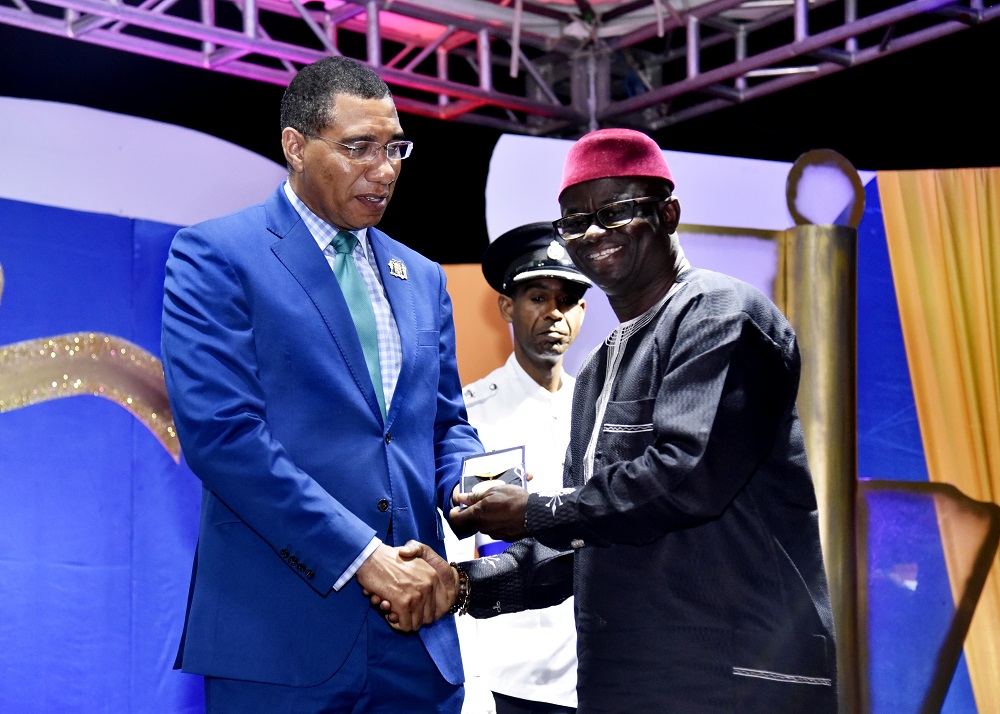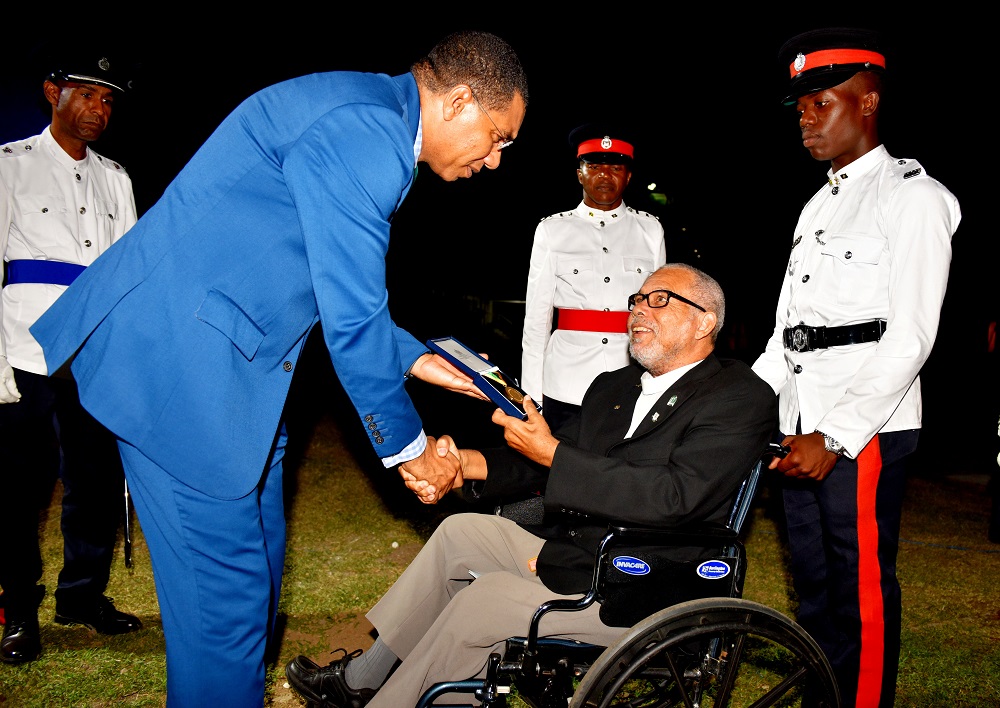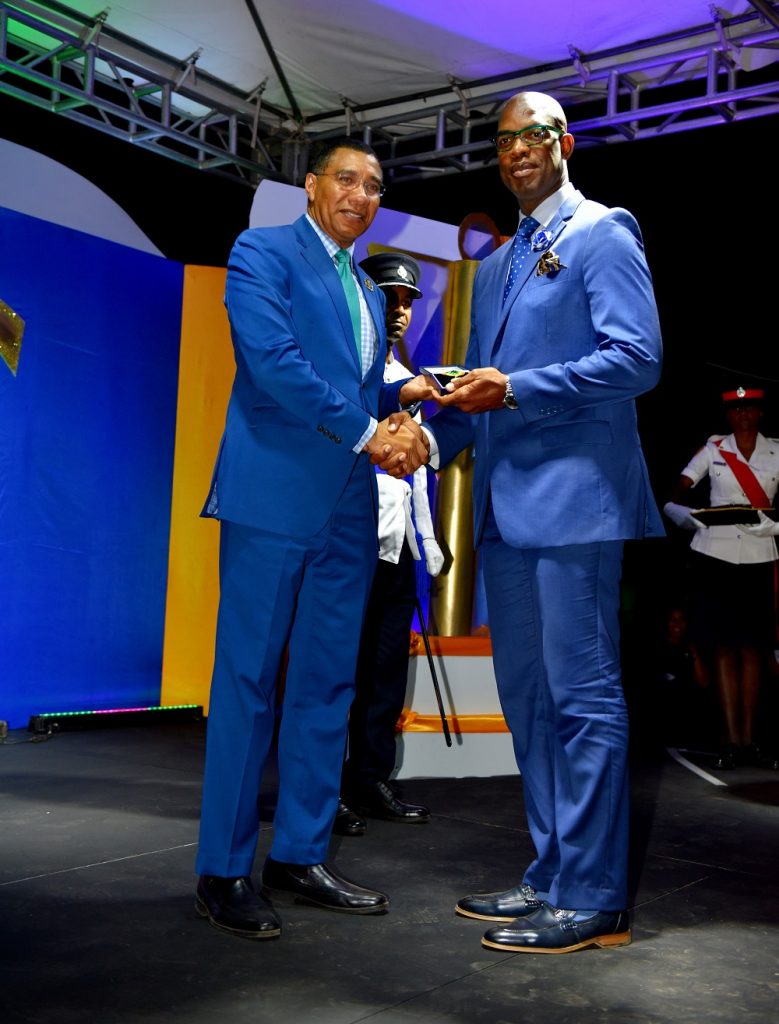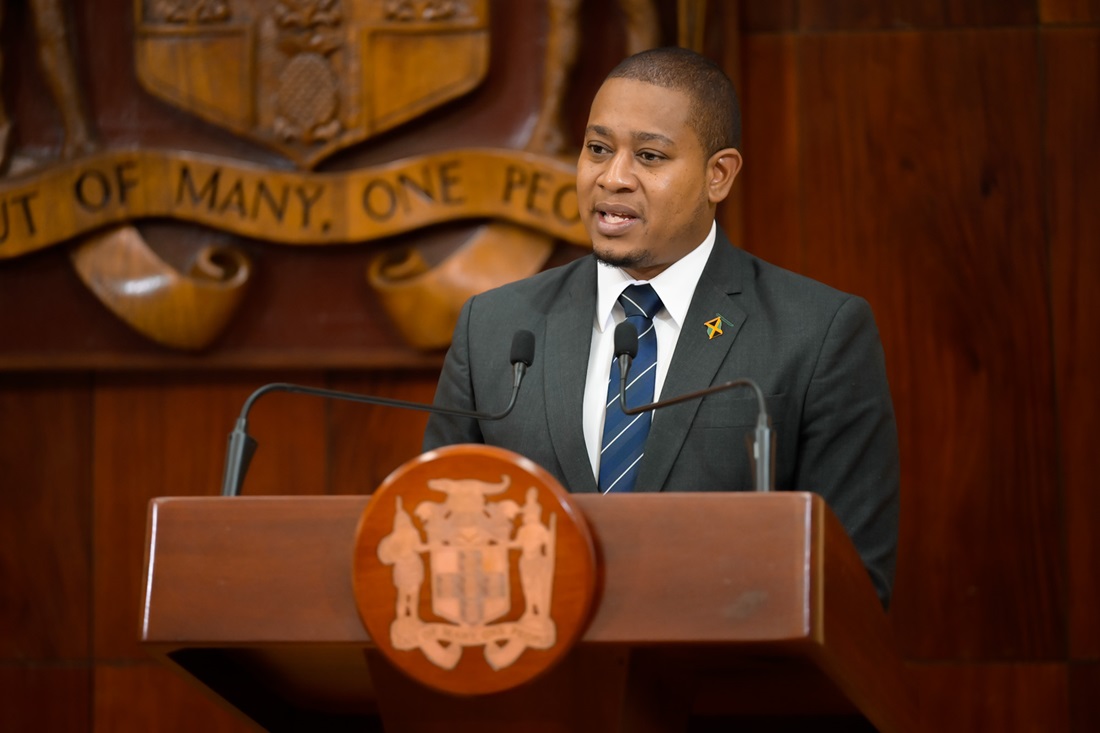#Kingston, June 28, 2019 – Jamaica – Recipients of the 2019 Prime Minister’s Medal of Appreciation for Service to Education are being hailed for their extraordinary commitment and dedication to shaping the lives and sharpening the minds of the nation’s children over many decades.
This
praise comes from Prime Minister, the Most Hon. Andrew Holness, who presented
the 40 outstanding educators with their awards during a ceremony on the lawns
of Jamaica House on Wednesday (June 26).
The
recipients, with 1,250 years in combined contribution
to Jamaica’s education system, have served from the early-childhood
sector to the post-secondary level.
Mr.
Holness noted that the awards ceremony shows appreciation “for their commitment
and service and the difference that they have made and continue to make in the
lives of our children and, ultimately, the future of Jamaica”.
“Each,
no doubt, has a unique style that has allowed them to impart knowledge to their
students in a manner that awakens their intellectual curiosity, stimulates
their appetite for learning and fuels them to engage in nation-building across
various sectors,” he said.
In his
remarks, Minister without Portfolio in the Ministry of Education, Youth and
Information, Hon. Karl Samuda, noted that educators, whether in the classroom
or in administration, “have helped to shape the character of students through
the values imparted and in helping them to awaken their dreams and
aspirations”.
“Your
work and sacrifices have enabled many students, who might have otherwise given
up on themselves, to catch a vision of what they could achieve and to apply
themselves to accomplishing these goals,” he said.
Permanent Secretary in the Education Ministry, Dr. Grace McLean,
noted the value of the annual awards scheme in giving proper recognition and
acknowledgement to a group of persons who “have devoted their lives and time in
service to our country”.
“It is a selfless and often thankless task, without which this
country would neither improve nor prosper… . It is [through education]… that we
are able to have direct contact with our children, that we are able to mold
them and train them to create a population and a workforce that is conscious,
hard-working, honest and full of integrity,” she said.
The Prime Minister’s Medal of Appreciation for Service to
Education is awarded to teachers with a minimum of 15 years’ service to
education in Jamaica, whose contributions are deemed outstanding.
To be considered for the award, recipients must have shown
evidence of community involvement, including participation in civic and club
activities.
Contact: Alecia Smith
Release: JIS
Photographers: Donald De La Haye and Yhomo Hutchinson
Header: Prime Minister, the Most Hon. Andrew Holness (third right, front row), with the 40 recipients of the 2019 Prime Minister’s Medal of Appreciation for Service to Education, following the presentation ceremony on the lawns of Jamaica House on Wednesday (June 26). Also pictured (in front row, from second left) are Permanent Secretary in the Education Ministry, Dr. Grace McLean; State Minister in the Ministry of Education, Youth and Information, Hon. Alando Terrelonge; and Minister without Portfolio in the Ministry of Education, Youth and Information, Hon. Karl Samuda; Their Excellencies the Most Hon. Sir Patrick Allen, and Lady Allen; Rev. Ronald Thwaites representing Leader of the Opposition, Dr. Peter Phillips; and award recipient and Retired Principal of the Black River High School in St. Elizabeth, Barrington Buchanan.
First Insert: Prime Minister, the Most Hon. Andrew Holness (left), presents an award to Director, School of Academics and Student Affairs, Caribbean Maritime University in Kingston, Professor Ibrahim Ajagunna. Occasion was the 2019 Prime Minister’s Medal of Appreciation for Service to Education held on the lawns of Jamaica House on Wednesday (June 26).
Photos by Donald De La Haye
Second Insert: Prime Minister, the Most Hon. Andrew Holness (left), presents an award to Retired Principal of the Black River High School in St. Elizabeth, Barrington Buchanan. Occasion was the 2019 Prime Minister’s Medal of Appreciation for Service to Education held on the lawns of Jamaica House on Wednesday (June 26).
Third Insert: Prime Minister, the Most Hon. Andrew Holness (left), presents an award to Director at the eastern campus of the Northern Caribbean University in St. Andrew, Robert Miller. Occasion was the 2019 Prime Minister’s Medal of Appreciation for Service to Education held on the lawns of Jamaica House on Wednesday (June 26).
Photographer: Yhomo Hutchinson
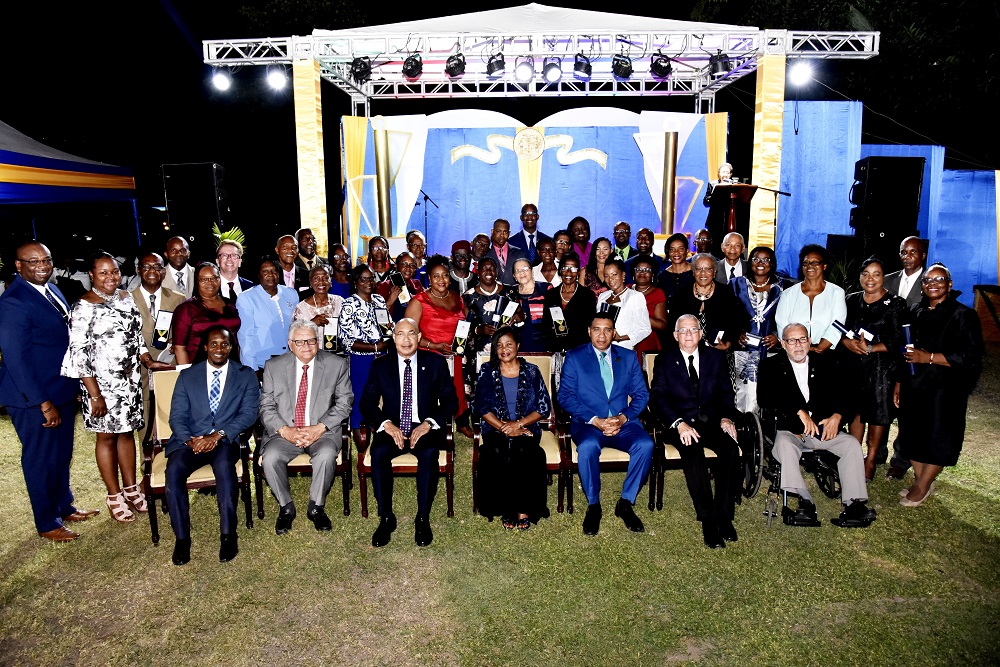

 News7 days ago
News7 days ago
 Health1 week ago
Health1 week ago
 TCI News3 days ago
TCI News3 days ago
 Caribbean News6 days ago
Caribbean News6 days ago
 Education6 days ago
Education6 days ago
 Caribbean News1 week ago
Caribbean News1 week ago
 Caribbean News6 days ago
Caribbean News6 days ago
 Bahamas News1 week ago
Bahamas News1 week ago
